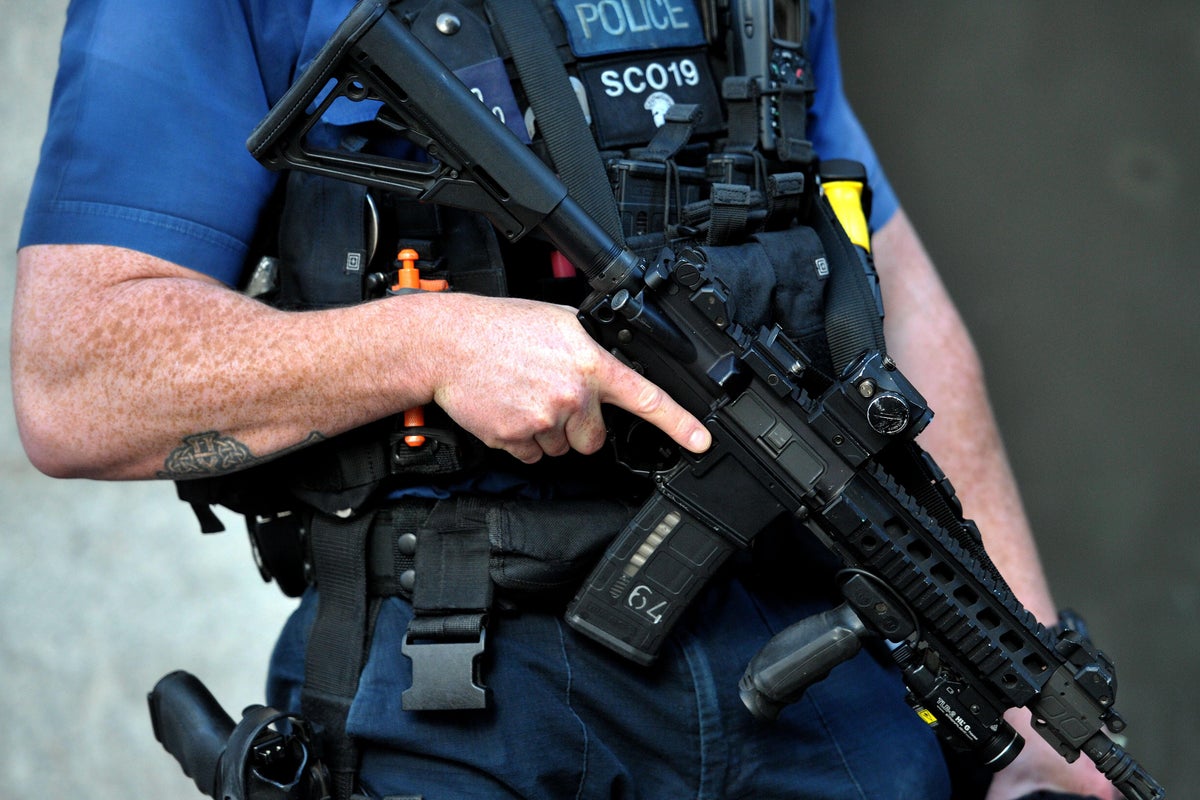
Firearms officers charged in relation to their duties should receive more support from the law, a former Metropolitan Police chief has said.
Lord Hogan-Howe told peers that legislation needs to offer more “generosity and sympathy” for officers.
His comments come after misconduct proceedings were dropped against a prison officer who shot a man dead during a prison break in 2015.
The officer, known only as W80, shot Jermaine Baker as police stopped a plot to snatch two prisoners from a van near Wood Green Crown Court in December 2015.
The Metropolitan Police misconduct hearing at Palestra House was thrown out on Wednesday.
Speaking during the second reading of the Government’s Crime and Policing Bill in the House of Lords on Thursday, Lord Hogan-Howe said he welcomed the presumption of anonymity for firearms officers charged in relation to their duties, but said more should be done.
“I acknowledge that the development around the anonymity of officers is welcome,” he said.
“I think this development is a good one, and I support it.
“This group of brave men and women, who protect 69 million of us, are the only ones who could go forward on our behalf and deal with the people they have to deal with. I’m afraid they’re not receiving a good deal at the moment.
“This week alone, the officer in the case who shot and killed Jermaine Baker in 2015 was told he had no case to answer in his conduct process – 10 years…
“It’s about timeliness… I will also say the law ought to offer more generosity and sympathy to the officer in the first place.”
He added: “No one argues that accountability is essential. I really think something has got to happen in this area, and as yet it hasn’t.”
Introducing the wide-ranging Bill, justice minister Baroness Levitt said it would improve the timeliness and appropriateness of investigations by the Independent Office for Police Conduct (IOPC).
She said: “The occasions where the police have to use lethal force in this country are few and far between, but when they do so, it is entirely right that officers are accountable for their actions, but those accountability arrangements must be proportionate, timely and fair to all concerned.”
Tory peer Lord Garnier, a former solicitor general, criticised the Bill, branding it a “catalogue of early day motions” rather than a practical answer to the problems it seeks to identify.
If passed, the Bill would create new respect orders, as part of the Government’s efforts to crack down on antisocial behaviour, and set up a new duty to report suspected child sex offences to police forces and councils in England.
It will also decriminalise abortion for women acting in relation to their own pregnancies and provide anonymity for firearms officers charged with offences relating to their duties until sentence.
Speaking during the Bill’s second reading in the House of Lords, Lord Garnier said: “Many of the measures in this Bill, I’m sure, are, on their face, worthy and assuming they’re not already criminal offences, no doubt good measures taken from the Criminal Justice Bill.
“But passing laws is not, of itself, a solution to an actual or perceived problem.”
He added: “The court system is under strain. The police are under strain.
“Our prisons are under strain, and yet we blithely pile more and often repetitive legislation on them for political effect, without calculating whether the new provisions already exist or can be managed within the present, creaking criminal justice system.”
